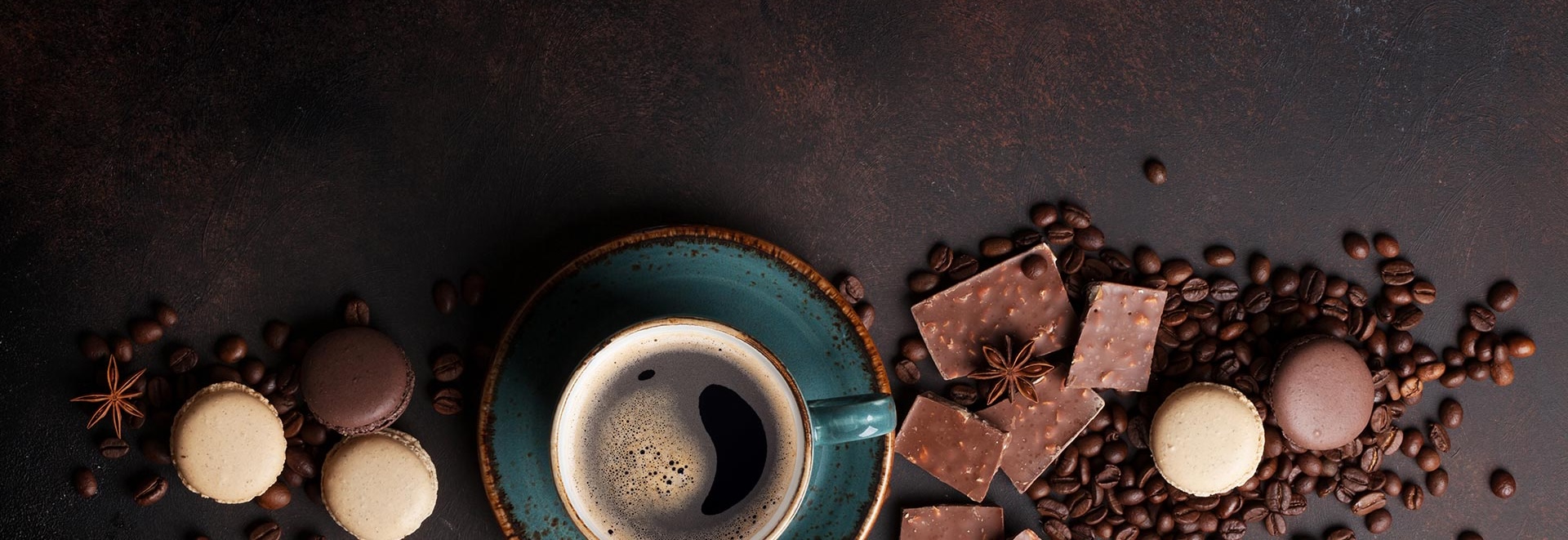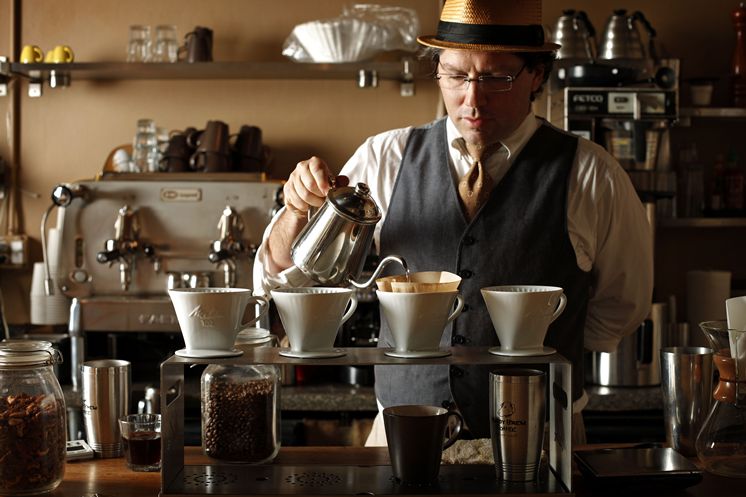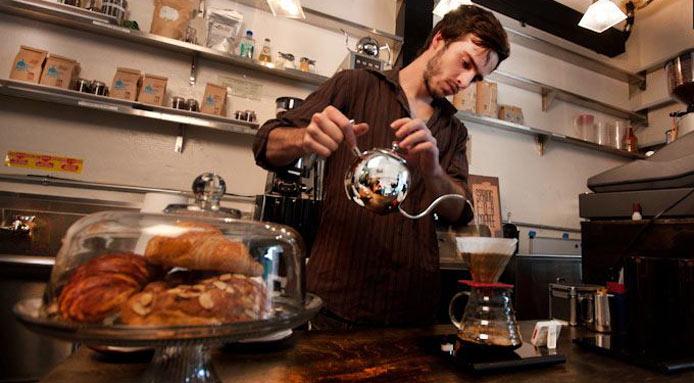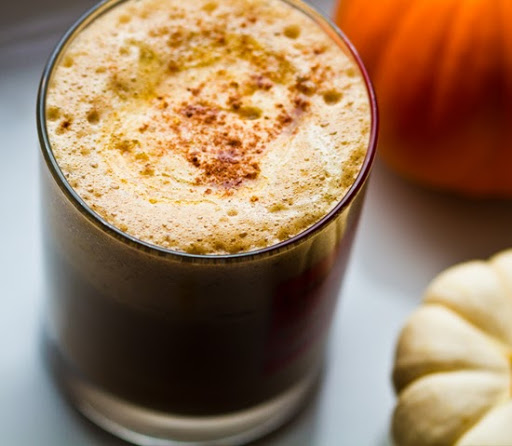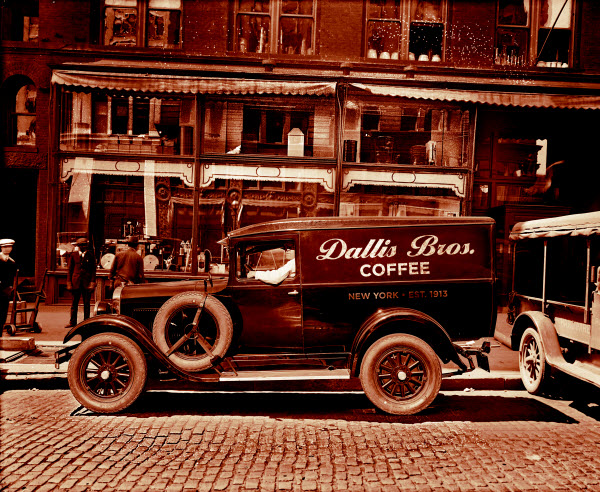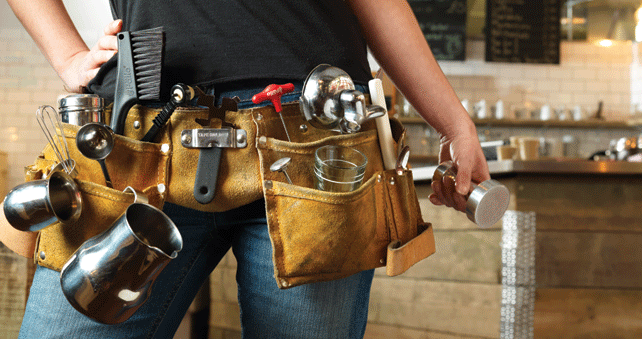Will the “Third Wave” Coffee Shop Last? Part 3: The Final Verdict
Having looked at “The Good” and “The Questionable” aspects of the Third Wave movement, let’s try to piece together a projection of what the future of these shops looks like, and what it will take for the ones that already exist to enjoy further success.
Will the “Third Wave” Coffee Shop Last? Part 1: The Good
If you have encountered a young person—usually with a handlebar mustache, a cardigan, a smattering of tattoos, and a knack for thrift shopping—who has proceeded to tell you about a new coffee shop in an artsy part of the city you live in, he or she was probably referencing what is now known as a “third wave” coffee shop. You've probably heard of cafés like it before; they usually serve fair trade coffee, offer gluten-free pastries, and are more expensive than your run-of-the-mill coffee spot. In the worst case scenario, the young person you encountered might have scoffed at your frequent Starbucks runs and your cup of Folgers every morning. In the best case, they encouraged you to visit their favorite café because they enjoy the environment, the coffee, and the values the business boasts. The patrons of these budding establishments are often referred to as “hipsters,” but the interesting fact is that they aren't just a fringe demographic; their values correspond with the values of millennial consumers as a whole. Those born between 1980 and 2000—the peak ages for specialty coffee drinkers—show marked concern for the environment, healthy growth of the economy, and gravitate towards companies committed to good citizenship. These are the frequenters of the third wave coffee shop. So all of us longstanding coffee industry participants need to ask ourselves, is the third wave here to stay? In what ways is the tide changing? Let’s take a look at what good has come from this movement to see if this style of café will long endure.
Step Aside Pumpkin Spice Latte, There are 5 New Fall Drinks in Town
Autumn is a time of rituals. Some traditions are necessary, like the switch from swimsuits to sweaters because of the gradual drop in temperature (depending on where you live) and some are subconscious like the annual biking to work everyday because it’s-just-so-darn-nice outside. Some are bizarre like the Zozobra Festival in Santa Fe and some are so natural it is impossible to imagine the months September to November without them. One tradition that is quickly being inducted into the last category is the Pumpkin Spice Latte. People come out of the woodwork for that stuff. You’ll be hard pressed to find a coffee shop without it. Well, we think it’s high time to expand all of our colorful leaved horizon and give some other Autumnal drinks a chance of entering the seasonal canon. Here are some autumn flavors you may not have given a chance yet. As you’ll soon find out, Maple, Pumpkin, and Spice are the words that will sustain you through Halloween and Thanksgiving. Here are 5 unconventional ways to mix up your fall lineup.
3 Reasons Small Distributors are Necessary for Your Business
No small business is an island. Every business depends on the goods and services of other businesses. Distributors specifically can be valuable small business partners if you utilize their full potential. You'll remember our two friends from our previous article "Five Buck Chuck" and "No Slip Chip." They each have different perspectives on their cafe's role in the business ecosystem, specifically when relating to wholesale distributors. Chuck, as you may recall, spends several hours each week running to and from a large wholesale supplier. He receives a couple of small deliveries for milk products and baked goods each week, otherwise he retrieves supplies himself on his own time. He wants to save as much money as possible so he rarely researches new products that could be used or sold in his cafe. For this reason, his menu rarely changes and many of his products have become outdated. Chip, on the other hand, has a healthy relationship with his various vendors. He uses a couple different companies but has one that delivers most of his supplies once a week. He rarely has to worry about adjusting his orders, and when he does, he is ordering more of a product that is selling better than he expected. Unless the cafe is overwhelmingly busy, he gladly talks with his vendors when they call or visit and thoughtfully considers the products they present. Here is why Chip places value on his relationship with small distributors.
Five Buck Chuck or No Slip Chip: Which Type of Manager are You?
Without a doubt, the capital sin of small coffee retailers that keeps their businesses from healthy growth is an ongoing effort of trying to "buy their way to success." This might sound good in theory and seem natural to many managers, but these individuals tend to cling to their hard earned dollar so tightly that they neglect the potential fat-walleted customer who would gladly become a loyal patron given the proper motivation. Having worked with many different managers, we have concluded there are two types of coffee shop managers personified by Five Buck Chuck and No Slip Chip.

